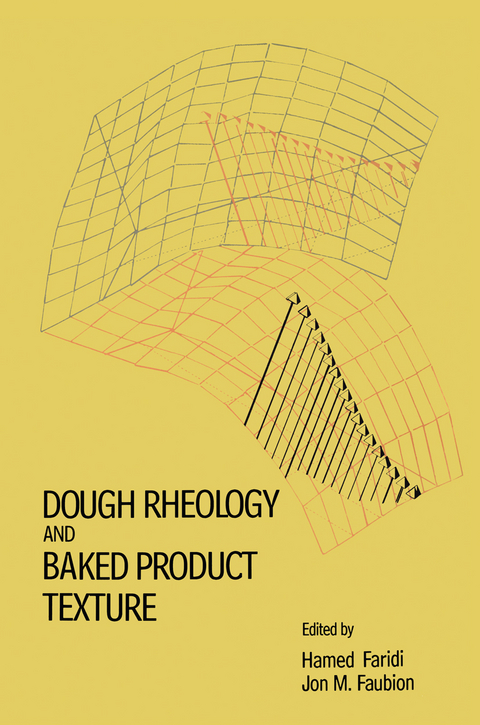
Dough Rheology and Baked Product Texture
Springer-Verlag New York Inc.
978-1-4612-8207-5 (ISBN)
1. Fundamental Aspects of Dough Rheology.- 2. The Viscoelastic Properties of Wheat Flour Doughs.- 3. Rheological Properties of Cereal Proteins.- 4. Rheological Properties of Cereal Carbohydrates.- 5. Influences of the Glassy and Rubbery States on the Thermal, Mechanical, and Structural Properties of Doughs and Baked Products.- 6. Basic Principles of Food Texture Measurement.- 7. Application of Rheology in the Bread Industry.- 8. Application of Rheology in the Cookie and Cracker Industry.- 9. Application of Rheology in the Pasta Industry.- 10. Application of Rheology in the Breakfast Cereal Industry.- 11. Influence of Extrusion Processing on In-Line Rheological Behavior, Structure, and Function of Wheat Starch.- 12. Rheology in Process Engineering.- 13. Interrelationships of Rheology, Kinetics, and Transport Phenomena in Food Processing.- 14. Rheological and Engineering Aspects of the Sheeting and Laminating of Doughs.- 15. Practical Texture Measurements of Cereal Foods.- 16. Texture Evaluation of Baked Products Using Descriptive Sensory Analysis.
| Zusatzinfo | 628 p. |
|---|---|
| Verlagsort | New York, NY |
| Sprache | englisch |
| Maße | 152 x 229 mm |
| Themenwelt | Naturwissenschaften ► Chemie ► Technische Chemie |
| Recht / Steuern ► EU / Internationales Recht | |
| Technik ► Lebensmitteltechnologie | |
| Technik ► Maschinenbau | |
| Wirtschaft ► Betriebswirtschaft / Management | |
| ISBN-10 | 1-4612-8207-1 / 1461282071 |
| ISBN-13 | 978-1-4612-8207-5 / 9781461282075 |
| Zustand | Neuware |
| Haben Sie eine Frage zum Produkt? |
aus dem Bereich


